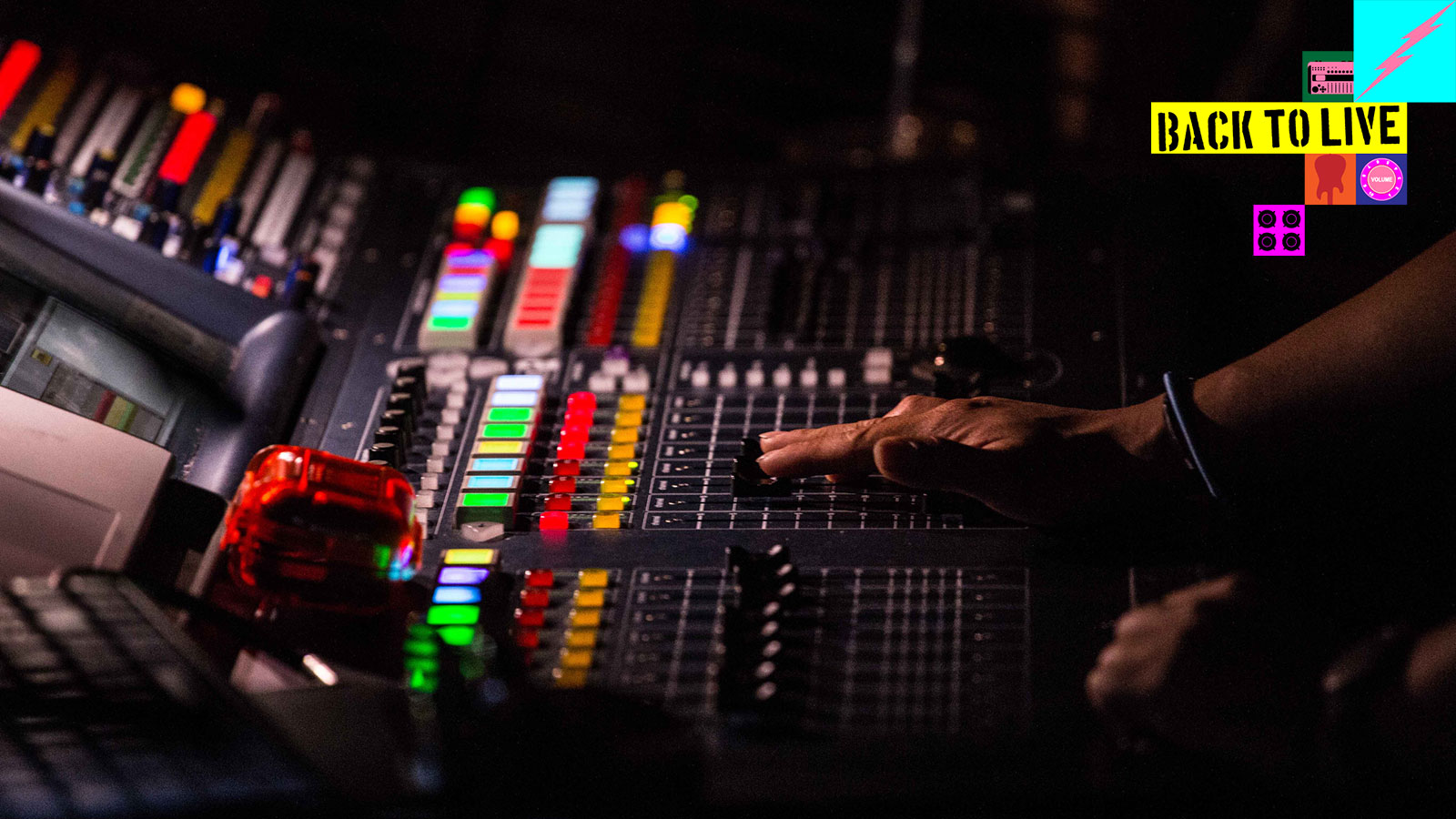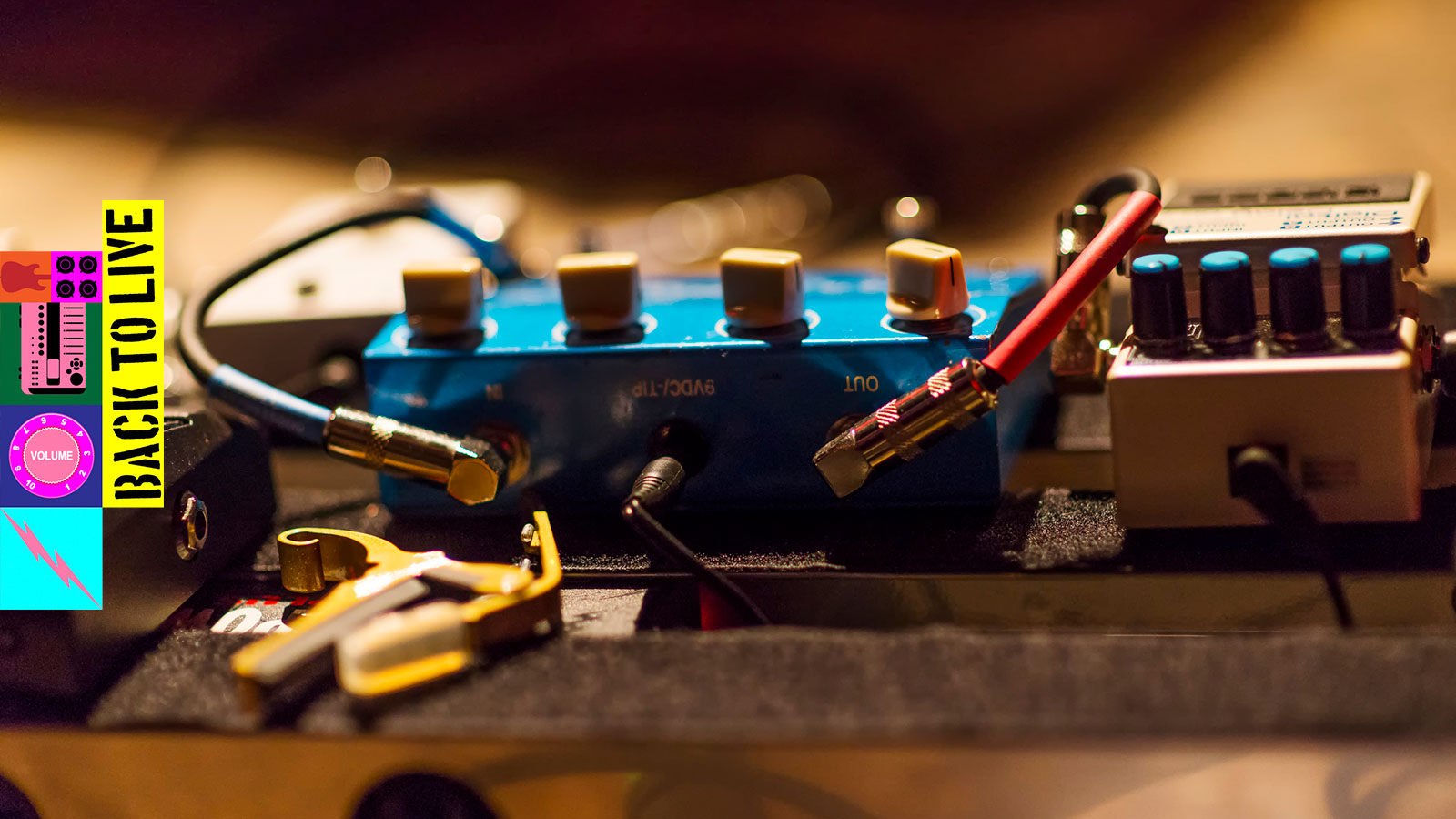Guitarists! Ace your soundcheck with our pre-gig checklist
Back To Live: essential dos, don'ts and pre-show tips

It's looking increasingly likely that musicians of all stripes will have the chance to perform again in the coming months. With this in mind, perhaps it's time for a refresher on gig etiquette and live sound, with our dos and don'ts of soundcheck.
Do...
Learn the names of the sound engineers: treat them with respect and thank them at the end of the night, even if they do treat you like an amoeba.
Set your amplifiers to sensible volume levels onstage. Moderate levels allow the engineer to have more control over the overall front-of-house balance meaning that monitors don't need to be pushed to levels where they begin to feed back in order for singers to hear themselves.
Turn your amp on at least a few minutes before you start - it lets your valve amp warm up a bit.
Tune all your guitars (even your back- up) again as close to the start of your set as possible and make sure they're on hand and on stands. Things have a tendency to get knocked over in the heat of the moment.
Choose a song for soundcheck that will test the sound mix in the best way for all instruments in your band.
Listen carefully to the mix of instruments coming through the monitor speaker wedge - can you hear yourself and the rhythm section clearly to keep time?
Get the MusicRadar Newsletter
Want all the hottest music and gear news, reviews, deals, features and more, direct to your inbox? Sign up here.
Check as many of your sounds as you can: clean/crunch/distortion channels all need to be checked so they're at the right level. Ditto effects.
Talk to the other bands you're playing with on the night and find out what backline will be shared. While it's common for a headline band to let support acts share drum shells and stands, it's not for breakables like amps.
Be tuned-up and ready to take to the stage when the sound engineer needs you.

Don't…
Drink alcohol excessively before. It won't make you play any better!
Assume you'll be able to share gear and turn up with minimal kit. It should be easy to get contact numbers or email addresses for the other acts on the bill from the promoter or the venue, and it's common courtesy to ask first.
Crank your volume if your amp is being mic'd through the PA - you don't need a very loud onstage volume. Let the sound engineer get the levels. And you may not need your cab or combo front-on to the audience if it's being mic'd - angle it in a position best for you.
See soundcheck as a rehearsal or jam. One or two short songs should provide more than enough opportunity for the sound engineer to set up a decent mix. Taking liberties won't do you any favours with the other bands on the bill.
Leave your pedals running with the input plugged in for long periods of time ahead of the gig if you're using nine-volt batteries with your effects pedals - it drains the power unnecessarily.
Get bogged down with your onstage sound if you're playing outside. Put even more trust in the sound engineer's front of house mix - the nature of the external environment means your concern is playing in time, and the sound engineer's is making sure the audience get a good mix.
Play blazing lead lines when the sound engineer is tweaking the bass drum sound - he/she won't appreciate it.
Lose sight of the bigger picture - it's about attitude as well as the rig you're setting up. And remember that you get back what you put out. If you're confident, professional and polite, that's what you'll get back from the engineer and other bands.
Total Guitar is Europe's best-selling guitar magazine.
Every month we feature interviews with the biggest names and hottest new acts in guitar land, plus Guest Lessons from the stars.
Finally, our Rocked & Rated section is the place to go for reviews, round-ups and help setting up your guitars and gear.
Subscribe: http://bit.ly/totalguitar
“I’m beyond excited to introduce the next evolution of the MT15”: PRS announces refresh of tube amp lineup with the all-new Archon Classic and a high-gain power-up for the Mark Tremonti lunchbox head
“These guitars travel around the world and they need to be road ready”: Jackson gives Misha Mansoor’s Juggernaut a new lick of paint, an ebony fingerboard and upgrades to stainless steel frets in signature model refresh




![PRS Archon Classic and Mark Tremonti MT 15 v2: the newly redesigned tube amps offer a host of new features and tones, with the Alter Bridge guitarist's new lunchbox head [right] featuring the Overdrive channel from his MT 100 head, and there's a half-power switch, too.](https://cdn.mos.cms.futurecdn.net/FD37q5pRLCQDhCpT8y94Zi.jpg)





